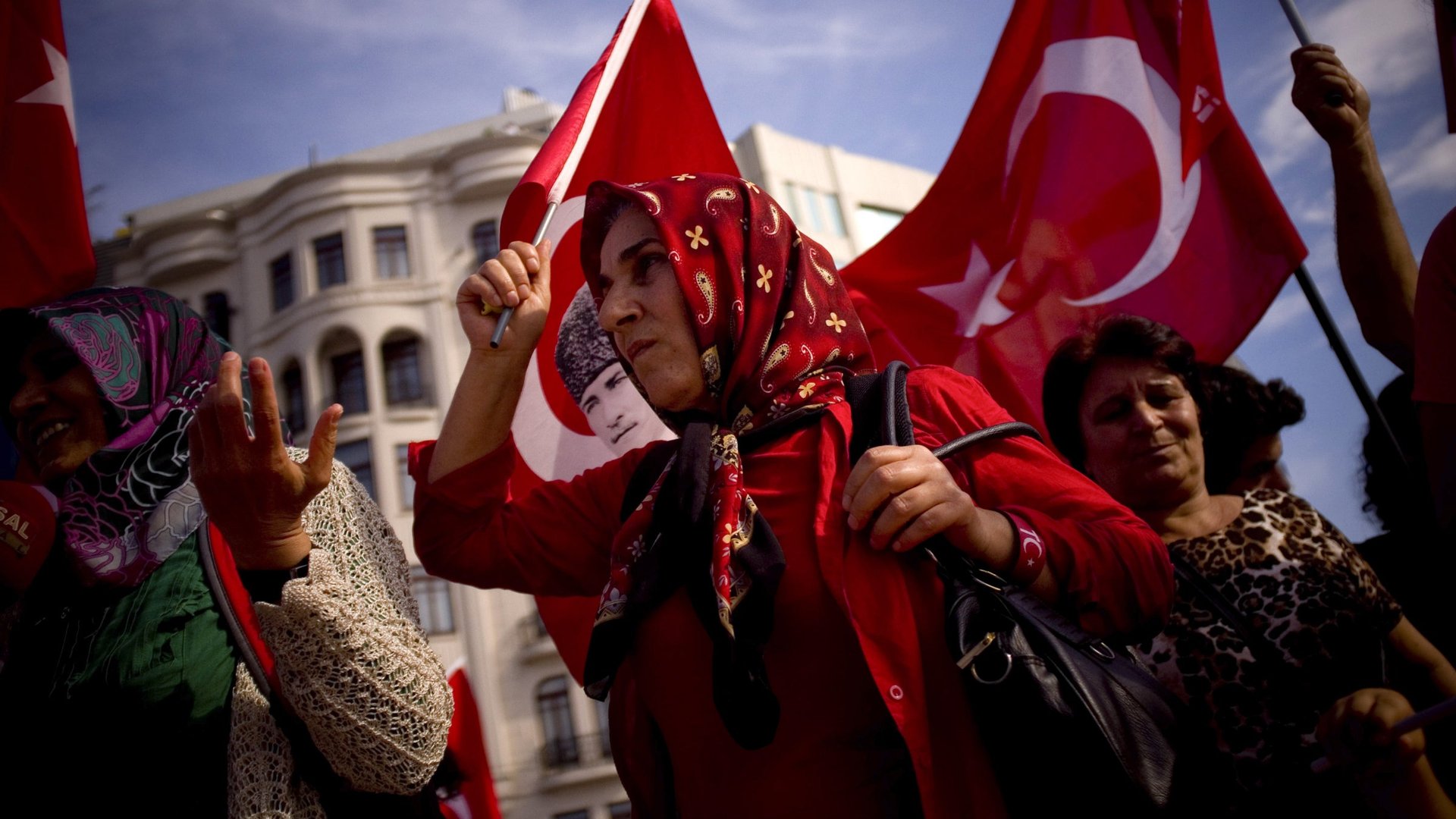This is not a Turkish Spring and isn’t likely to be
Turkey’s story has been one of cycles of conflict and then calm, not long-term violence in which citizens gather arms against the regime. Turkish military intervention could, for decades, be counted on to impose order on a divided public or allegedly Islamic-leaning political leaders.


Turkey’s story has been one of cycles of conflict and then calm, not long-term violence in which citizens gather arms against the regime. Turkish military intervention could, for decades, be counted on to impose order on a divided public or allegedly Islamic-leaning political leaders.
While the current protest over Istanbul’s Gezi Park have escalated in violence, domestic tensions no longer portend a coup.
The army, long the Turkish public’s most trusted institution and the self-styled guardian of Kemalist secularism, has seen its role as domestic watchdog neutered by a combination of democratizing reforms (that have placed it more firmly under civilian control) and political maneuvering that has removed many of its most vigilant generals from office.
Without plausible military intervention, AKP is far more emboldened than any previous right-wing party in Turkey might have been and will almost surely retain full power over the military and law enforcement.
But as for the idea that everyday Turks might rise up against the state, and the military? That’s even less likely. Despite the hundreds of thousands of protesters on the streets and the millions more that might sympathize with them, AKP too has millions of supporters. Even if the extreme reaction of the last week has forced some people off the political fence and onto the side of the protesters, AKP can still count on support from much of its conservative base, who helped elect it to a third electoral victory in 2011.
Three outcomes are possible. Least likely is that Erdogan will concede to demands for his resignation and early elections that could sweep AKP out of office. He intensifies his rhetoric daily and defiantly insists that construction on Gezi Park will go forward. Having painted himself into a tight political corner, Erdogan sees himself unable to respond to protesters without looking weak, no matter how many people head to the streets—a shame since even acknowledging the protesters could do much to calm the situation.
A second, more likely outcome is that the protest movement will peter out after several more days or weeks, dissuaded by the ongoing injuries, arrests, and deaths that will accompany continued police violence. We must only hope that the state response stops short of harsher tactics like increased arrests and the ordering of civilian deaths, which would seriously harm human rights as well as Turkey’s international standing. In the longer term, successfully evading calls for reform would probably entrench Erdogan’s domineering tendencies, which could potentially spell a tragic, slow slide into authoritarianism.
A third possibility—a long, Syria-like intractable civil conflict—seems premature. Erdogan, for all the current chaos, is not Assad. As far as we know, internet connections have not been tampered with, the police have not been authorized or instructed to kill civilians, and organizations within Turkey seem to feel comfortable publicly lodging their complaints. In short, things are not as bad as they could be and there is room for compromise. Erdogan should seize it and rein in the police force’s more extreme methods. The situation is precarious and any or all of the above factors could yet change to galvanize anti-AKP forces and make civil conflict more likely.
Also a mediating factor is the collective understanding within Turkey that the country has come incredibly far economically and politically in recent years. Everyone, Erdogan included, is loathe to undo years of progress. Full breakdown would not only hurt Turkish citizens, but also Turkey’s standing as an emerging regional power and the oft-lauded model of Muslim-majority democracy.
Nonetheless, intractable conflict is not entirely off the table and could become more likely if intensifying crackdowns spur and radicalize protesters rather than disperse them. Turkish society has historically grappled with its main divisions—secular/religious, elite/working class, and right/left—in fits and starts of conflict that have eventually abated, albeit sometimes with military intervention. Now, with an enervated army and the national media largely stymied by AKP, protesters know that their prospects are limited.
If crushed without any governmental concession or acknowledgment, they might write off Turkish democracy as a sham, disengage from public life, and leave the victorious AKP to lead a country made unstable by ossified social divisions that push dissidents toward violence.
Erdogan would be prudent to make reasonable overtures before the viability of an unlikely Turkish Spring, or, worse yet, a long-term civil war, are put to the test.